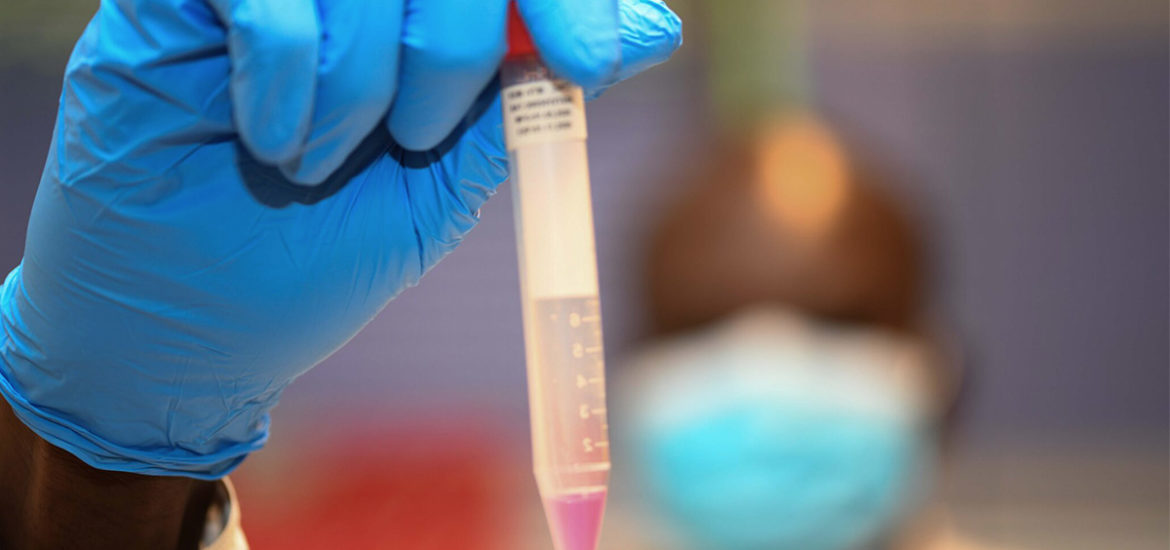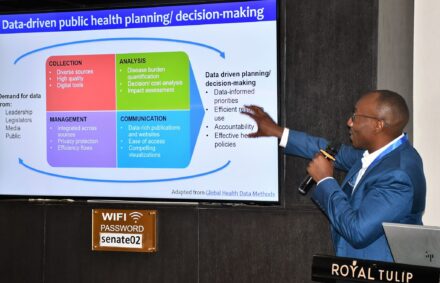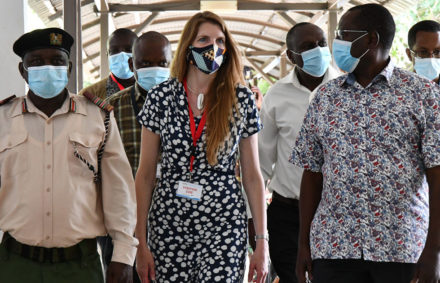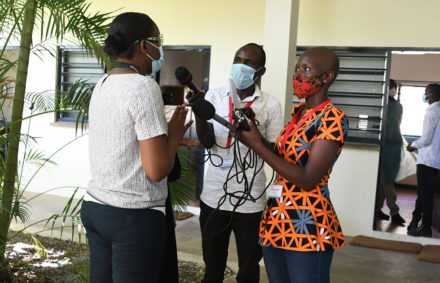
Start of the ChAdOx1 nCoV-19 trials in Kenya
Kenya has joined the global efforts in search of an effective vaccine for COVID-19 with the start of a trial evaluating a leading COVID-19 vaccine candidate ChAdOx1 nCoV-19. The trial team has vaccinated its first volunteers after receiving the necessary regulatory and ethical approvals, as well as the national ministry of health, and Kilifi county go ahead.
The trial will be hosted at KEMRI at its Kilifi based KEMRI-Wellcome Trust Research Programme, a longstanding collaboration between KEMRI, University of Oxford and the Wellcome Trust in the UK.
The ChAdOx1 nCoV-19 vaccine has been developed by the University of Oxford in partnership with AstraZeneca and is currently under evaluation in several countries including the United Kingdom, South Africa and Brazil. ChAdOx1 nCoV-19 was made by incorporating genetic material from SARS-CoV-2 virus into an adenovirus. Adenovirus causes a mild flu amongst chimpanzees, but the modified form of virus used for ChAdOx1 cannot cause disease in humans. This platform has a well-established track record in terms of its ability to safely elicit immune responses in humans when used for other diseases. This has allowed the clinical development of ChAdOx1 nCoV-19 to move forward rapidly, with over 10000 volunteers immunised across the global trial sites and the vaccine found to be well tolerated.
Vaccines which work in one population do not necessarily work in all populations; this has been witnessed in the case of vaccines against malaria, rotavirus and Ebola. To ensure that Kenyans can benefit from the ChAdOx1 nCoV-19 vaccine if it proves to be successful, it is important to assess its performance among Kenyan volunteers.
For this reason, KWTRP expressed an interest to evaluate the vaccine in Kenya, leveraging the institute’s well-established capacity in the conduct of clinical trials in Africa and long-standing collaboration with the University of Oxford. For instance, the institute has been involved in pre-clinical vaccine development, first-in-human trials, as well as early and late-stage evaluation of vaccine candidates against malaria, Ebola, Shigella, yellow fever and pneumonia.
The study plans to evaluate whether the ChAdOx1 nCoV-19 vaccine is safe, effective and elicits good immune responses in adults in Kenya aged 18 years and above. The trial in Kenya will initially involve 40 frontline workers in Kilifi County. Once the vaccine safety is confirmed, a further 360 volunteers will be recruited with possible expansion of the trial to Mombasa County. Following immunization, vaccine trial volunteers will be monitored over a period of 12 months to assess their health, any vaccine side-effects and how their bodies develop immunity in response to the vaccine.
As of November, 2020, there were over 50 million confirmed COVID-19 cases globally, and over 1.4 million deaths recorded. There has been no licensed vaccine for COVID-19, with several prevention and containment measures being implemented globally and nationally. These include lock downs, restrictions in travel, physical distancing, universal masking and hand hygiene among others. The COVID-19 pandemic has also had an overwhelming impact on healthcare systems and economies throughout the world and a vaccine would help alleviate these burdens.
For further information please contact



